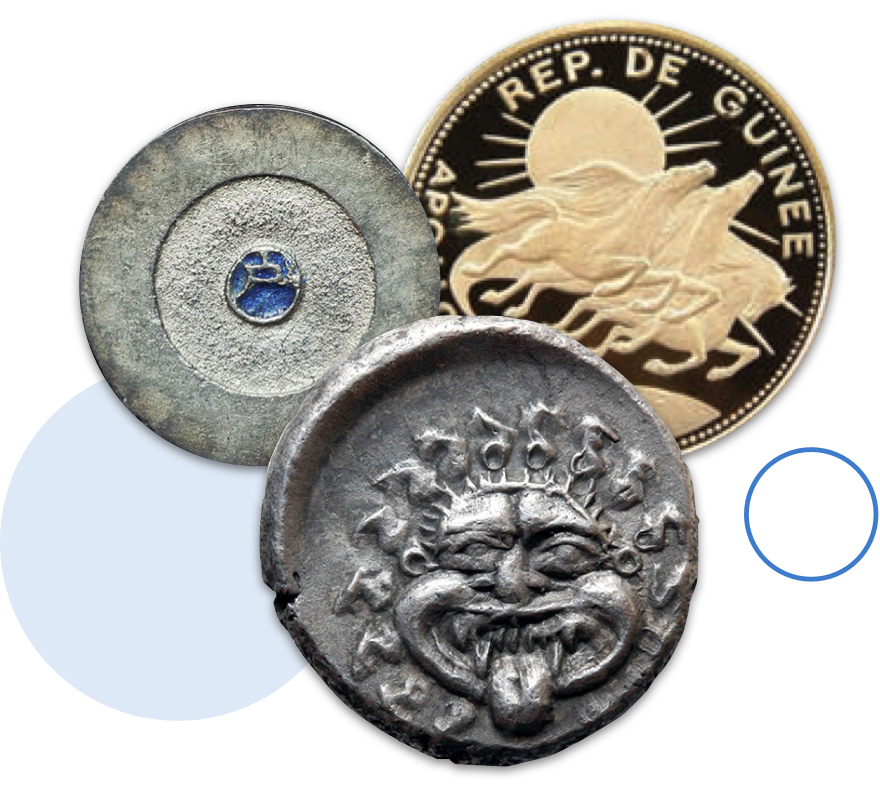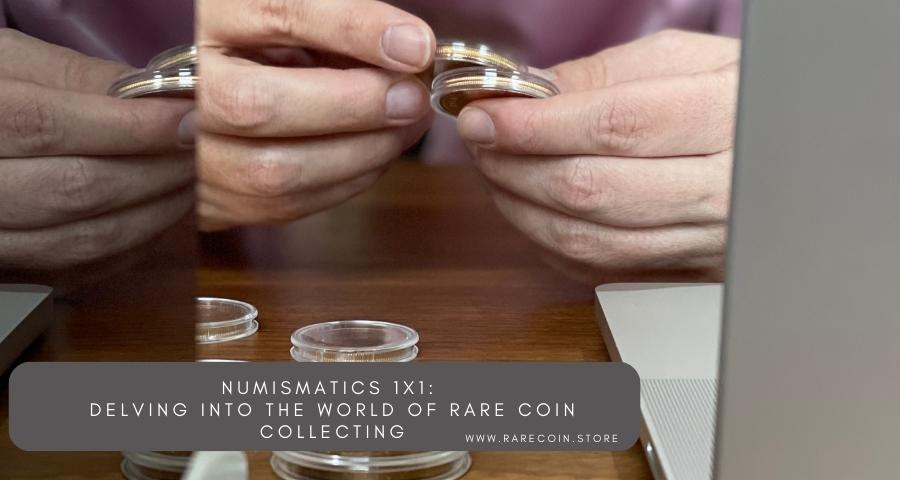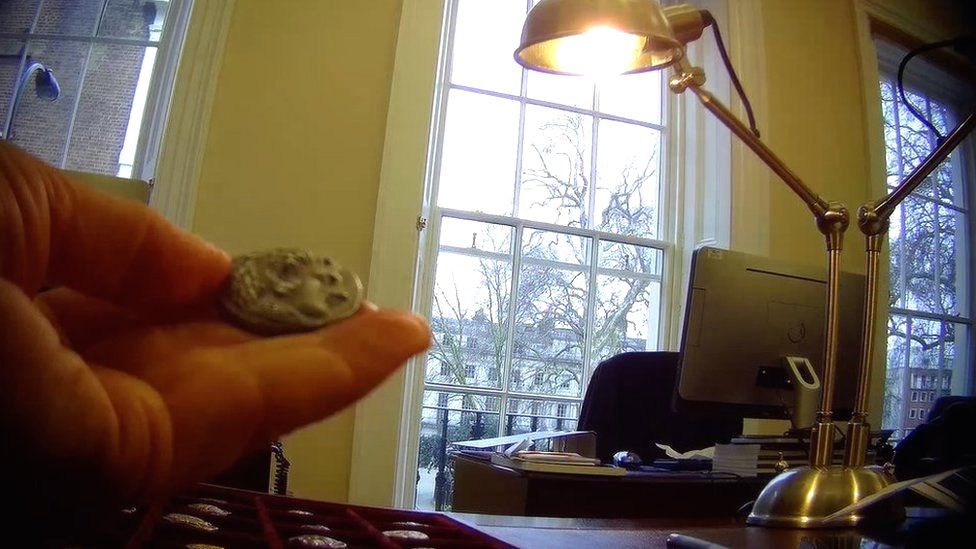Handy Suggestions To Picking Coin Expo And Bullion
Handy Suggestions To Picking Coin Expo And Bullion
Blog Article
What Can I Do To Search For Global And Region Associations Within Numismatics?
Here's a method for conducting this type of research: Database Selection: Choose databases that specialize in numismatic associations, like the websites of major numismatic societies, such as the American Numismatic Association (ANA), International Numismatic Association (INC) or regional associations, like the Australian Numismatic Association. A systematic approach is offered to aid you in this type of research. JSTOR is a database of academic articles as well as conference proceedings and databases.
Define Research Focus: Specify your research objectives. Are you keen to learn more about global numismatic association's activities, history and regional collaborations conferences, and publications or are you looking for specific numismatic topic which is being discussed by the associations? Find out what you are looking for to guide your search.
Search Strategy: Utilize keywords such as "numismatic associations," "global numismatics,"" "regional numismatic societies," and add specific association names or geographic regions if relevant. You can use advanced search features to filter results according to date, type of document (such as conferences papers or newsletters of associations) as well as geographical area.
Access to data collection Information about the background and mission, membership publications, as well as the activities of regional and global societies for numismatics. Information on the past and upcoming research, conferences and workshops are available. Find databases that contain information about the members, their contacts and leadership information.
Analysis: Examine data to better understand the effects of both local and international societies of numismatics. Analyze how these associations aid in the advancement and dissemination of research in numismatics International collaborations, publications and international collaborations.
Cross-Referencing - Check what you've found through cross-referencing data across different databases and sources. Examining the activities and initiatives of different associations will give you a greater understanding of regional and global numismatic developments.
Documentation. Note your research findings, including each source and detailing the methods you used. Take note of the information in the databases you visited and the search terms you used as well as the importance each source offers to your research.
Stay updated: Numismatics associations are continually evolving. This includes new publications, collaborative projects, and conferences. Stay current by checking association websites as well as newsletters and databases of scholarly journals.
Utilize these tips to use databases efficiently to research numismatics and global and regional associations. This method allows for a detailed investigation of the scholarly processes and organization structure that shape the numismatic community globally. View the best money info for website recommendations including mint condition, currency appraisal, czech coins, banknote printing, pound, yen, nickel, currency, banknote appraisal, coin magazine and more.
How Do I Use A Database To Research Numismatics Regarding Exhibition And Show Events?
This research involves using databases to preserve information on exhibitions, shows and conferences related to numismatics. To conduct this research, here's how you can do it:Database selection: Choose databases that are specialized in numismatic events and shows. For instance, you can look at the websites of the most prominent numismatic associations like the American Numismatic Association.
Define Research Focus: Specify your research objectives. Are you looking to find out more about the past and upcoming numismatic conferences, regional coinshows, thematic or educational shows as well as upcoming exhibitions of coins? Define your objectives to guide your search.
Search Strategy: Use specific keywords, such as "numismatic exhibits," "coin exhibit," or "numismatic activities," as well as event names, locations and thematic focus if appropriate. Search results can be filtered by the date, event type (such conferences, exhibitions) or geographical region using the advanced search option.
Data collection: Obtain information regarding upcoming and past exhibitions and numismatic events. Details such as the dates, organizers and places of events, special themes or collections, exhibitors who are participating, publications or catalogues that are associated with the event and more. It is possible to gather information. Search databases for virtual tours, or access to exhibit items.
Analysis: Analyze the data to discover the themes, trends, and educational purposes of numismatic shows and events. Examine how various exhibitions, events and collections help to improve public awareness of numismatics.
Cross-Referencing: Check your findings by comparing information through multiple databases, event listings as well as official sites. This ensures completeness and accuracy in your research, providing an extensive overview of events in the world of numismatics.
Documentation: Documentation is important. Note sources and the methodologies you have used. Keep track of details on the databases used, keywords used to search, and the importance of every source you use to answer your research needs.
Stay updated: Numismatics is an ever-changing field with numerous exhibitions, conferences and exhibitions. Keep track of updates from event organizers or databases that specialize in this to stay up-to-date on the upcoming events.
These steps will help you discover numismatics in databases related to events and exhibitions. This method allows for an extensive investigation of the variety of exhibitions and numismatic events around the globe, their educational value and scholarly contributions. Take a look at the best currency exhibition for site info including copyright, coin catalog, platinum, coin die, coin artist, currency catalog, ringgit, proof, rand, banknote storage and more.
How Can I Search For Numismatics And Legal Experts On An Online Database?
This research can be conducted in a methodical manner using databases focusing on numismatics, coinage laws as well as currency laws, legal precedents, and academic articles. Here is a methodical way to conduct such a research:Databases Selection: Choose databases that are specialized in research on legal issues. They include databases that focus on the law of numismatics, court decisions related to numismatics and academic publications on the legal aspects numismatics. Legal research platforms like Westlaw as well as LexisNexis are examples, along with publications from numismatic journals and numismatic societies, and numismatic law magazines.
Define Research Focus: Specify your research objectives. Are you interested in learning more about the legal rules that govern coinage the numismatic dispute, and currency? Are you looking for regulations on coin production circulation, production, as well as legal interpretations of the authenticity of numismatics and ownership? Make sure you know the right direction to direct your search.
Search Strategy: Incorporate particular legal concepts like ownership or authenticity in your search. You can also include historical cases. Utilize advanced search filters to narrow results by dates, the jurisdiction (national as well as international) and legal subjects in relation to the numismatics.
Data collection: Get access to the legal precedents, court decisions, legislative texts, and articles on numismatic law. Collect details, such as briefs of court cases as well as legal analyses and interpretations on relevant statutes. Also, collect historical perspectives.
Analyse the data and understand the challenges that numismatics faces. Study the impact of legal structures on the numismatics industry, such as transactions, collection and authentication management and international trade. Compare and contrast legal interpretations in different jurisdictions and the past.
Cross-Referencing. Verify what you have discovered by cross-referencing information from different databases journals, courts files and academic documents. This will ensure the accuracy and completeness of your research. This also provides an extensive overview of the legal framework for Numismatics.
Documentation. Note your findings in research papers by noting the sources you used and noting the methodology. Keep track of the details like the databases you searched with, the search terms you used, and the way each source relates to your research.
Keep updated: Numismatic law and legal interpretations evolve with the passage of legislation and judicial decisions. Keep current by following updates from legal databases and publications on the law of numismatics, and information from numismatic associations on legal changes.
Following these steps, you'll be able to effectively utilize databases to study the field of numismatics with respect to legal experts. This approach enables a detailed study of the legal frameworks, challenges, and scholarly interpretations that intersect with the field of numismatics, offering insights into the legal issues that govern collections, coins and commerce worldwide. See the top rated coin magazine for blog info including banknote display, banknote production, coin series, coin club, silver coins, rand, coin holder, coin planchet, pound, coin mintmark and more.
Where Can I Find Experts In Conservation And Preservation By Using An Online Database?
The study of numismatics in relation to conservation experts and preservation specialists involves the use of databases that focus on conservation techniques, preservation methods and case studies of the numismatic arts and crafts, as well as contributions from conservation experts. This is a systematic way to conduct this type of study: Database selection: Choose databases that are focused on the conservation and preservation cultural heritage including numismatic objects. There are examples of these on the websites of conservation organizations (such International Institute for Conservation of Historic and Artistic Works) and in museum conservation departments and in specialized publications.
Define Research Focus: Specify your research objectives. Are you keen to know more about conservation techniques applied on the numismatic objects and case studies of restored coin or medals. Prevention-based conservation methods or ethical considerations for the preservation of numismatics? Determine the goal of your search.
Search strategy: Use keywords that explain conservation methods (such as cleaning and stabilization) or historical periods. Use advanced search options to filter results by date, conservation topics and case research.
Data collection: Find out on conservation methods and preservation techniques used to preserve numismatic objects. Find information on cases studies, essays, conservation techniques conservation experts' interviews and guidelines for handling and preserve numismatic collections.
Analyze: Study and interpret the data to learn about the methods that are used, the challenges, new ideas, and innovations in conservation. Evaluation: Assess the effect of conservation methods on numismatic objects. Also, evaluate the role that a scientific analysis can play in conservation decisions. Integrate ethical principles into conservation procedures.
Cross-Referencing Validate your findings by cross-referencing between databases, conservation organizations' websites, museums conservatories, and scholarly journals. This will ensure the accuracy and completeness of your study. Additionally, you will get a full picture of numismatic restoration practices.
Documentation. Record your findings in an organized manner. Include all sources utilized and provide the methodology. Detail the databases used and the search term(s) and relevance of each source to the research inquiry.
Keep up to date: As research and technology advances, conservation techniques and standards evolve. Keep track of updates from museums, conservation departments from conservation organizations, and publications that specialize in numismatics to keep abreast of the latest developments.
Databases are a great way to learn about numismatics from conservation and preservation specialists using these steps. This approach enables an in-depth analysis of the processes of preservation, ethics, contributions, and challenges encountered by conservationists in the process of preserving numismatic items. See the recommended coin catalog for blog examples including currency exhibition, bullion, rand, coin rarity, proof coins, banknote holder, dinar, mint condition, coin society, banknote certification and more.
How Can I Make Use Of An Numismatics Database For Networking Opportunities?
If you are researching numismatics for networking opportunities, databases and platforms are used that enable connections to be created between collectors. Dealers, scholars, and enthusiasts of the field of numismatics. The following is a systematic way to conduct such research: Database selection: Select databases or platforms which are specifically designed for numismatic opportunities for networking. Examples of these include numismatic sites and online discussion forums (such CoinTalk, Reddit’s Coins) and social media (such Facebook and LinkedIn) groups, and professional social networking platforms.
Set the Research Focus. Specify Your Networking Objectives. Are you looking to connect with collectors to exchange information and experiences, collaborating with dealers for sales or acquisitions, working with scholars for research, or being involved in numismatic events and conferences? Determine what you're trying to find in order to narrow your search.
Search strategy: Use keywords that describe your interests, such as "numismatics", "coin collectors forums" or "numismatic social networking groups". If appropriate you are able to include geographical areas and/or specific interests. Use the search functions within platforms to find groups or events and forums that are relevant.
Data Collection Access to information regarding the networking opportunities within numismatic communities. Collect details like group descriptions, member benefits (such the ability to participate in events and discussions) forthcoming events and profiles of key organizers and influential people.
Analysis: Analyze the data to identify appropriate networking channels and potential opportunities. Evaluate the engagement levels within groups and forums and the variety of participants (collectors, dealers, scholars), the frequency of updates and discussions, and the potential for professional or academic collaborations.
Cross-Referencing: Confirm your findings by cross-referencing information across numerous databases, websites of numismatic societies, social media groups, and professional networking platforms. This helps you discover numerous networking opportunities across multiple platforms and regions.
Engagement: Participate actively in the networks you choose by taking part in discussions, sharing information, asking questions, and offering expertise. Establish connections with other dealers, collectors and scholars in order to build your network and exchange important numismatic information.
Documentation: Document your activities in a systematic manner by noting the various platforms you use as well as the group members, meetings attended, as well as contacts made. Note down the opportunities you explore and the results that come from your networking efforts.
These steps can help you explore numismatics as a way to build a network. This technique allows you to grow your professional network or personal network in the field of numismatics. It allows collaboration as well as knowledge sharing and involvement in events that improve your knowledge and involvement in the field. Follow the best shekel hints for more tips including banknote display, gold coins, lira, dollar, banknote auction, collector, money, dirham, yen, coin show and more.